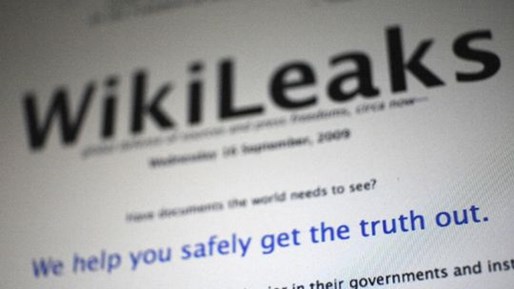Comment
Sportleaks

17.12.2010
So far, we have not had the opportunity to be shocked by great revelations from the world of sports – neither of sports in politics or politics in sports. This says a lot about the limitations of WikiLeaks and about who holds the power in the international sports world.
Three cases
Among the hundreds of thousands of leaked WikiLeaks documents, only a few cases have been about sports and politics. Actually, they only really concern three issues: one case is about football politics in Burma and two cases are about U.S. assessments of the threats of terrorism in connection with the 2008 Beijing Olympics and the 2016 Rio Olympics.
Aung San Suu Kyi for the Wolves!
The Burma-disclosures are more sardonically funny than they are sensational. The WikiLeaks documents suggest that the Burmese authorities first wanted to place a bid for Manchester United and then force business people in Burma to establish a professional football league. This case shows that totalitarian regimes can easily become megalomaniac. Anyway, I doubt that Aung San Suu Kyi would be cheering for Alex Ferguson's disciples. In fact, she is a supporter of the Wolverhampton Wanderers!
Beijing Olympics again
The "revelations" of the terrorist threat against the Beijing Olympics is not particularly exciting or surprising, either. The threat assessment is written by an American diplomat at the U.S. embassy in Beijing and the source is a Chinese Intelligence Officer. The document states that terrorists from East Turkestan – the place in China where the Uyghurs live, commonly called Xinjiang – were planning to bomb George W. Bush, Gordon Brown, David Miliband, Condoleezza Rice, many other VIPs, Hong Kong, Shanghai, and the opening and closing ceremonies.
There is, however, reason to believe that Chinese authorities would have presented such claims regardless of whether they were true or not in order to keep justifying their repression of the Uyghurs by referring to the terrorist danger they pose. On the other hand, it is easy to present such a description of reality because the Olympics are favorite targets for terrorists and everybody always fear the worst.
Does WikiLeaks give the terrorists an advantage?
U.S. assessments of the security and the terror threats against the Olympic Games in Rio – which has not yet taken place – are more interesting. WikiLeaks has revealed prejudiced American assessments of the Brazilians and Brazilian mentality. In brief, American diplomats in Brasilia claim that Brazil is not prepared for the large influx of visitors in 2016. The documents mention many holes in security. The Americans' assessments can be interpreted in several ways.
Firstly, a lot can happen and while these assessments might say something about the current situation, they say little about what will happen in 2016. We have already seen that the Brazilian police have started the cleanup of the Rio favelas. The Olympic preparations have started, in other words.
Secondly, these disclosures can reveal the shaky foundation the choice of host for the 2016 Olympics was taken on. Security is an important part of the application.
Thirdly – which might be one of the problems with WikiLeaks – information about a security breach might both give terrorists an advantage when they are planning terrorist attacks against Rio and create unnecessary fear long before the start of the Games. The terrorists can, in other words, collect two wins six years before the Olympics starts when such information is released.
Brazilian stereotypes
When it comes to U.S. assessments of the terrorist threat against the Rio Olympics, it is important to bear in mind that Brazil and Lula has led an unpopular foreign policy, seen with American eyes. Brazil has no official terrorist lists, it does not consider the FARC guerrillas in Colombia as a terrorist organisation and considers both Hamas and Hezbollah as legitimate political parties. When we furthermore know that Lula comes from the left in Brazilian politics we can understand that the U.S. – and especially George W. Bush’s minions – is skeptical of what is happening in Brazil. In this area, U.S. assessments of Brazil are very similar to the ones they made of Norway during the same period.
WikiLeaks' limitations
So what do these revelations say about WikiLeaks and sport’s place in the international community? First and foremost, they show that U.S. diplomats – and other diplomats – do not report on what is going on on the sports grounds. Secondly – and this is perhaps the most fundamental criticism of WikiLeaks – we get little information about the countries that have the least transparency and freedom of expression, but a lot of information about countries who score top grades on the freedom of speech-scale.
In democratic countries, sport is not a part of the state apparatus and is therefore not a part of the national interests that diplomats should report home about. In countries with less transparency, sport often plays a greater role as nation builder and suppressor than is the case in democratic states. After the fall of Saddam Hussein in Iraq, we have heard horror stories about the sports policy conducted there. If WikiLeaks succeeds in obtaining information from the most closed countries, we will also see more documents regarding sports.
Finally, these WikiLeaks-revelations show that the sports world and sports diplomacy works in a completely different way than traditional diplomacy. Less is written down and several unwritten laws apply. This also affects WikiLeaks
This article first appeared on Andreas Selliaas' blog 'Sportens Uutholdelige Letthet' on 16 December 2010. Follow Andreas' blog (in Norwegian) on sportensuutholdeligeletthet.blogspot.com





